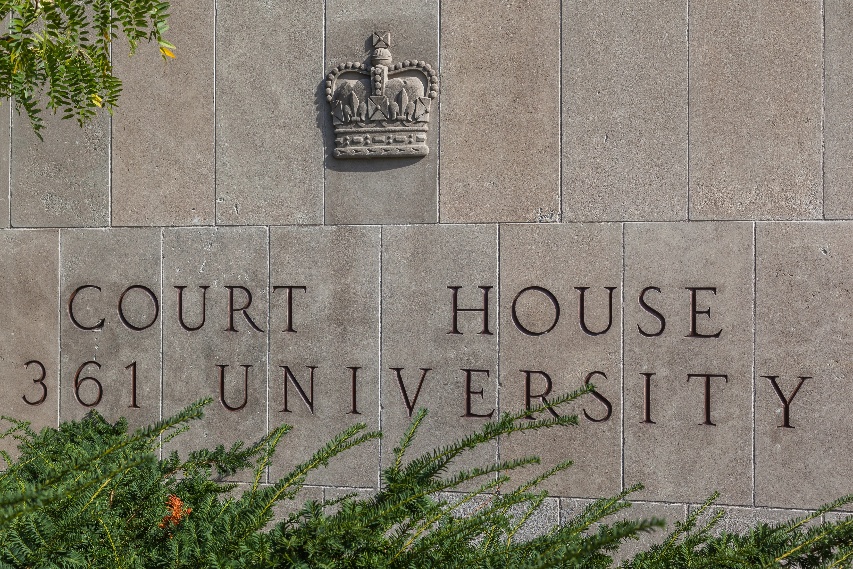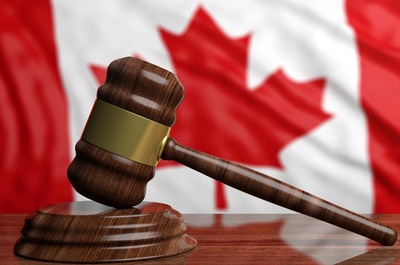In police procedural dramas on TV, it is not uncommon to see a judge “throwing out” a case and for the accused person and their family to hug each other joyfully and leave the courthouse.
In real life, having a case dismissed is a bit more complicated. You might be interested in how this works, especially if you have been charged with a crime and you believe you should be released.
In this article, a criminal lawyer from Toronto explains the difference between dropped charges, dismissal and acquittal and talks about how the process works.
Can a Judge “Throw Out” a Case?
The term “throw out” is only used in casual contexts. The more formal terms are dropped charges, dismissal, or acquittal.
What are Dropped Charges
Dropped charges mean the Crown attorney (the prosecution) chooses not to proceed with the case. This can only happen before the trial begins.
There are a few reasons why charges might be dropped:
- Lack of evidence: The Crown reviews the evidence and believes there is not enough proof to get a conviction.
- Unreliable witness: A witness is found not to be credible, refuses to testify, changes their statement, or recants their testimony.
- New evidence is found: Information is discovered that exonerates the accused person or calls other evidence into question.
- Crown’s discretion: The prosecution may decide that pursuing the case is not in the public interest.
- Diversion programs: First-time offenders may be allowed to complete rehabilitation or community service in exchange for the charges being dropped.
The criminal lawyer on your Toronto case will examine the evidence against you, looking for anything that could lead to the charges being dropped.
What Is a Dismissal?
A case dismissal means the case does not go to trial, or if it does go to trial, the trial is stopped before a final judgment is made. This can happen before or during a trial.
Here are some common reasons for a case to be dismissed:
- Insufficient evidence: The Crown does not have enough evidence to get a conviction.
- Violation of Charter rights: the police conducted an unlawful search, failed to inform you of your rights, denied you access to legal counsel, or otherwise denied you due process.
- Delays in your trial: Your case is delayed for too long without a valid reason.
- Failure to meet deadlines or court orders: The Crown failed to submit documents, present evidence, and follow legal procedures within the specified timeframe.
Unfortunately, a dismissal does not always mean the case is permanently over; that depends on whether it is dismissed with or without prejudice.
- Without prejudice: You could be retried at a future date.
- With prejudice: The case is permanently closed, and charges cannot be filed against you again for the same offence.
If you have a good criminal lawyer for your Toronto case, they will attempt to have the case dismissed with prejudice.
What Is an Acquittal?
In an acquittal, the case goes to trial, but the accused person is found not guilty. If this happens, you cannot be retried on the same charges due to double jeopardy.
What Is a Directed Verdict?
A directed verdict is when a judge ends a trial early because the Crown has not provided enough evidence for a conviction. The defence lawyer makes the request after the Crown finishes presenting its case but before the defence begins presenting evidence. If the judge agrees, the case is dismissed, and the defendant is free to go. If the judge denies the directed verdict, the defence must present their case and continue with the trial.
If the Crown’s case is weak, a skilled criminal lawyer in Toronto will strategically challenge the evidence and highlight the issues with the Crown’s case.
What Is a Mistrial?
A mistrial happens when a trial is invalidated before reaching a verdict because of a serious legal error or problem that prevents a fair trial.
Here are some common reasons for a mistrial:
- Jury misconduct: A juror talks about the case outside of court, conducts their own research about the case, accesses news reports, or is found to be biased.
- Hung jury: The jury cannot agree on a verdict.
- Improper conduct by lawyers or witnesses: The Crown or defence presents prohibited evidence or violates courtroom rules, or a witness provides inadmissible evidence that could affect the outcome of the trial.
- Legal or procedural errors: A serious mistake in legal procedure occurs, evidence is improperly admitted or excluded, affecting the fairness of the trial.
- External influence: Media coverage or social pressure influences the jury or one of the witnesses.
How a Criminal Lawyer in Toronto Can Help
If you have been charged with a crime, contact a criminal lawyer in Toronto immediately. Even if you are completely innocent and believe that you can prove it, any interaction with the criminal justice system is confusing and disorienting. A good criminal lawyer will guide you through the process, explaining your rights and options and shielding you from undue stress.
Here are some of the things an experienced criminal lawyer with a Toronto practice can do to help you:
- Filing pre-trial motions to challenge evidence or point out procedural mistakes.
- Arguing for Charter violations if your rights were infringed. This can lead to the charges being dropped or your case being dismissed.
- Negotiating with the Crown for case withdrawal, alternative resolutions, or lighter charges. If you are convicted, they can also negotiate a lighter sentence.
- Closely examining the evidence for anything that could lead to dropped charges or a dismissal.
- Mounting a robust defence to have you acquitted.
If you have been charged with a crime, contact a criminal lawyer before you speak to the police. You will be anxious to defend yourself but remain silent until you have an opportunity to confer with a criminal lawyer who has Toronto experience.
The team at Zamani Law, led by renowned criminal lawyer Farid Zamani, stands ready to protect your rights, examine every option to have the charges against you dropped or your case dismissed, and vigorously defend you in court if your case goes to trial.
Contact Zamani Law today for a free consultation.





